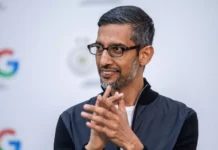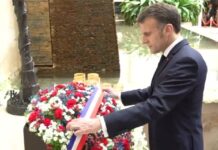India Post News Service
NEW DELHI: Prime Minister Narendra Modi has strongly defended the revocation of Article 370 that gave special status to Jammu and Kashmir stating that this has given nothing but separatism, terrorism, and dynastic rule in a land which he described as the crown of India.
He also assured the people of Kashmir will not face any trouble in celebrating Eid-ul-Adha August 12 and that the situation in the Valley will return to normal gradually.
“As a nation, as a family, you, we, the whole country have taken a historic decision,” Modi said in an address to the nation on television on Thursday.
“A system that has deprived us of many rights of our brothers and sisters in Jammu and Kashmir and Ladakh, which was a major obstacle in their development, has now gone away,” he said.
The Indian Parliament earlier this week abrogated Article 370 as also Article 35A that exempted the people of Jammu and Kashmir from a host of central laws and bifurcated the north Indian state into two union territories – Jammu and Kashmir with a legislature and Ladakh without one – that will be directly governed by the union government in New Delhi.
Modi said the dream of India’s first Home Minister Sardar Patel, Father of the Indian Constitution Babasaheb Ambedkar, ruling party Bharatiya Janata Party’s (BJP) ideological head Syama Prasad Mukherjee and former Prime Minister Atal Bihari Vajpayee has now been fulfilled.
Attacking Pakistan, which has termed India’s move as “unilateral and illegal” and strongly protested by downgrading diplomatic ties and expelling the Indian High Commissioner, Modi said Islamabad used Article 370 as a “tool to spread terrorism”.
“In the last three decades, over 42,000 people lost their lives to terrorism,” he said.
He said that many people were not even aware of the harm that was caused to the people of Jammu and Kashmir and Ladakh by Article 370.
“In other states of the country, the Safai Karamcharis Act is applicable for the cleaning workers but those in Jammu and Kashmir were deprived of it,” the Prime Minister said.
“In other states of the country, the Minorities Act is in force to protect the interests of minorities, but this was not the case in Jammu and Kashmir,” he said.
The Kashmiri Pandit Hindu community were the victims of ethnic cleansing in the late 1980s in the Muslim-majority Kashmir Valley.
Modi said that scrapping of Articles 370 and 35A will now allow state government employees, including police, get benefits at par with employees of other union territories.
“All vacant posts in Jammu and Kashmir, and Ladakh will be filled, creating employment opportunities,” he said.
The Prime Minister said that the Centre is trying to bring a new work culture and transparency in the Jammu and Kashmir administration.
He said this will open up opportunities of setting up premier Indian higher educational institutes like Indian Institutes of Technology (IITs), Indian Institutes of Management (IIMs) and All India Institute of Medical Sciences (AIIMS) to Jammu and Kashmir, and Ladakh.
Modi also assured the people of Jammu and Kashmir that they will get the opportunity to elect their representatives in a transparent way, an apparent reference to the dynastic politics that was played in the state over the last seven decades.
“As Jammu and Kashmir will see more and more development, I do not think it will remain union territory for long. But Ladakh will remain a union territory,” Modi said.
“I want to assure the people of Jammu and Kashmir that the situation will gradually return to normalcy and their difficulties will ease,” he said.
“The government is ensuring that people in Jammu and Kashmir will not face any difficulties in celebrating Eid,” Modi said.







